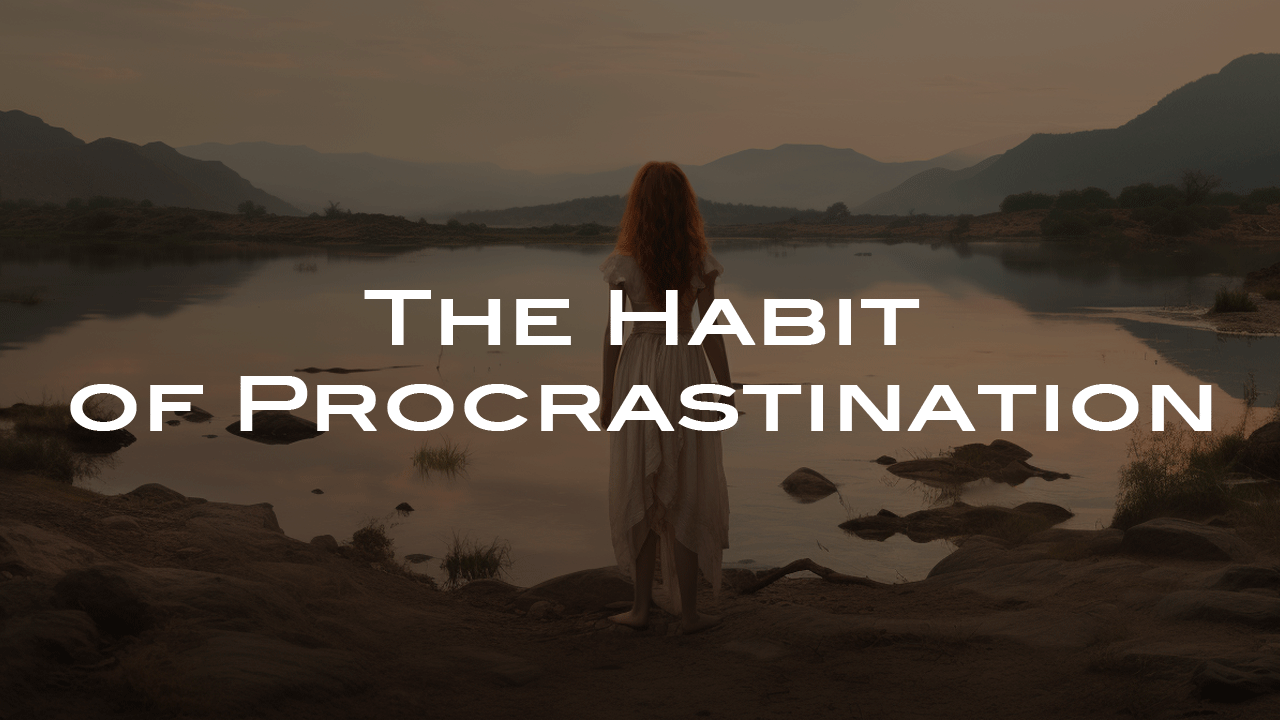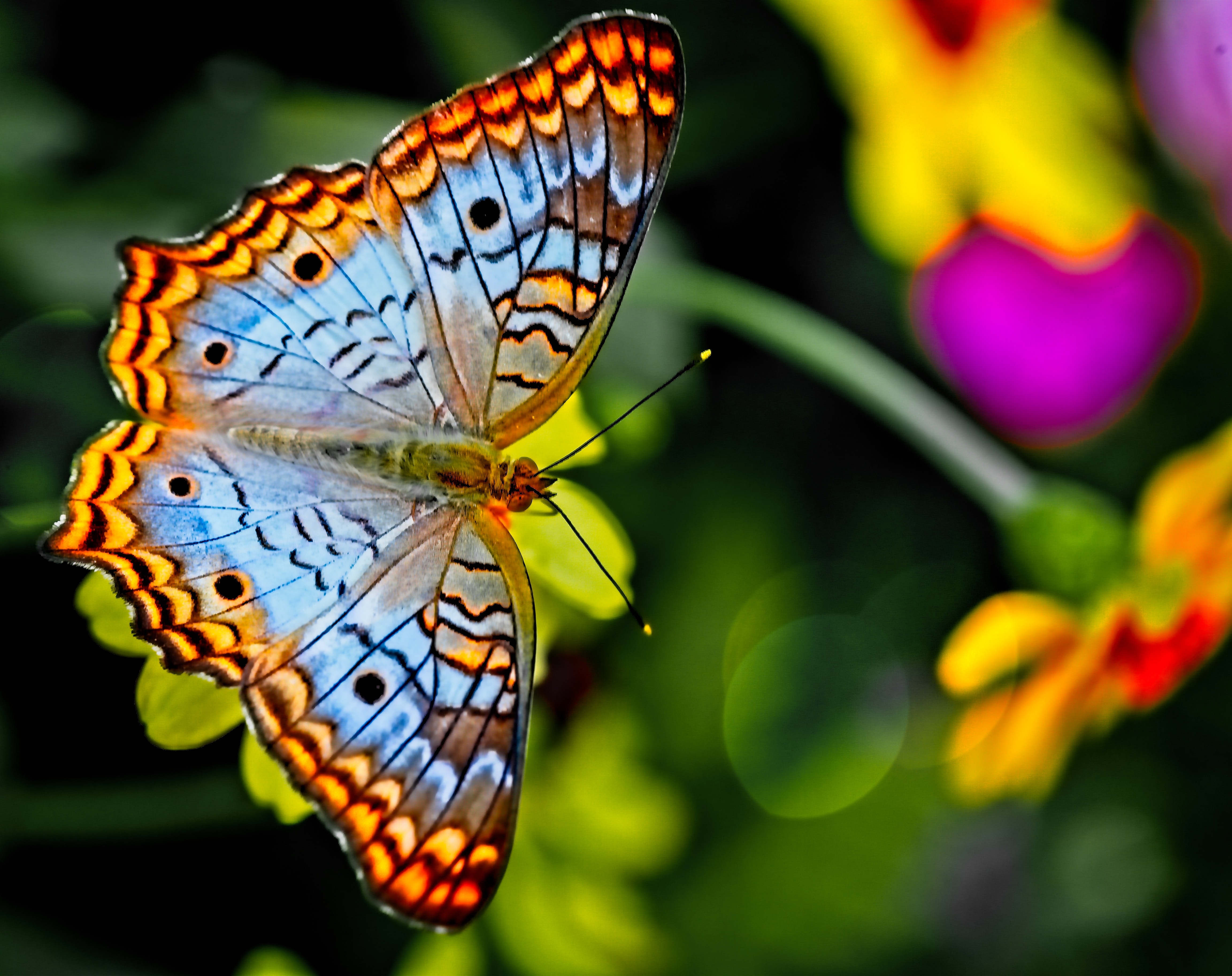The Habit of Procrastination
Sep 04, 2023
The “P" word. The habit of procrastination is one of the great killers of productivity, self esteem and success in business and life.
Procrastination wastes our time, makes us feel bad about ourselves, and keeps us from making progress in school, in our careers and hobbies, and in our lives. Everyone has moments of procrastination. Creators - of any kind: content creators, writers, musicians, artists - are especially prone to the adverse effects of procrastination.
But what is it?
Procrastination Is Fear
It is easy to think that moments of procrastination are just laziness or distraction or a loss of interest. But procrastination isn’t laziness; it’s a response to fear.
Sometimes it’s fear of rejection. “This project is going to suck and nobody is going to like it anyway.” “What if I put this creation out in the public and everyone laughs at it - and at me?” “What if this presentation isn’t good enough to get me hired/promoted?”
Procrastination can reflect a fear of incompetence. “I haven’t done any of the reading for this paper. I don’t even know what to write.” “I haven’t studied for this test; I’m going to fail anyway, why start now?” “This job is way over my head. Why waste time preparing for it when I’m just going to get fired?”
Procrastination frequently shows up as FOMO - the fear of missing out. “If I write that paper that’s due tomorrow, I’ll miss the big party. I can just do it real fast tomorrow morning.” “If I stay home to practice my instrument before the gig, I will miss the trip with my family this weekend.” “I should do a final edit on that article before the deadline. But then I won’t be able to go to that concert I want to see. I’ll just turn in what I have - it’s probably good enough.”
This is what we really mean when we justify procrastination by saying, “I just wasn’t that interested in it.” What we are actually saying is that we perceived some other activity as more interesting, and didn’t want to miss out on it.
No matter how it manifests, procrastination is almost always based in fear.
Unfortunately, procrastination leads to more procrastination.
The Habit of Procrastination
To understand how procrastination can become habitual, we have to understand how habits are formed.
Put simply, a habit is something we do on a regular basis, usually on “autopilot”; we don’t realize we are repeating the behavior. Importantly, a habit is hard to stop. Cigarette smoking is one example of a habit. Smokers light up without realizing they are doing it, especially in social situations or times of stress. And when they try to quit, most find it to be tremendously difficult.
The reason that habits are hard to break is that they are tied to rewards. We overeat because eating is a self-soothing behavior, not because we are hungry. There’s a reason we call it “stress eating.” The nicotine rush of a cigarette is the product of powerful reward circuits in the brain.
How does that apply to procrastination?
Procrastination rewards us not by causing a direct reward, but by avoiding an unpleasant or painful situation.
If you were given a choice of two buttons to press - and you had to press one of them - how would you decide which button to press? The choice would be much easier if only one of the buttons delivered a painful electric shock. You would quickly learn to press the non-electric button, not because there was a direct reward for it, but because you avoided the shock of the “wrong” button.
Replace the electric shock with the experience of fear, and you get the idea. When we have to meet that deadline or study for that test or produce that video, we have a choice. Get right down to business and feel the fear, or put it off and avoid the fear.
Pretty soon, we not only avoid the fear of that one specific fear-inducing task, we avoid any task that takes us out of our comfort zones. In psychology-speak, we learn to generalize our behavior to a wider and wider range of situations. The more we try to avoid fear and discomfort, the more we try to avoid all discomfort.
The Effects Of Procrastination
So what if there was a great party or concert, or a few more hours with a significant other, that caused us to put off a task we needed to do? Everyone “burns the midnight oil” once in a while, right? This is why Adderall® is so popular among college students and coders. A little “artificial energy” makes everything OK.
Until it doesn't.
Once the habit of procrastination sets in, “good enough” takes the place of excellence. This flies in the face of Matthew McConaughey’s advice: “Don’t half-ass it.”
Last-minute efforts and late nights spent doom scrolling (the latest and greatest procrastination technique) result in less than optimal results. Work that is below par results in missed opportunities, failed classes, loss of audience.
Those bad grades, missed promotions and lost gigs have real-world effects. Our financial situation worsens, our relationships suffer and our self-esteem plummets. There is nothing trivial about anxiety and depression, especially when we could have avoided them by not avoiding that which we needed to do.
And I believe there is an even more consequential problem with procrastination. I think we are put “here” for a reason. Each of us has a purpose, and that purpose benefits us and those with whom we interact. When we waste our time on earth, we belie our purpose and betray the great gift of existence and of consciousness itself.
How To Break The Habit of Procrastination
There are many highly effective ways to break the cycle of procrastination. Most of those are far beyond the scope of a blog or newsletter article (although I have workshops and seminars dedicated precisely to that end - shameless plug), but the one upon which I will focus here is based in the ill effects mentioned above.
The first step is to realize when you are indulging the habit of procrastination. Hours of scrolling through social media is procrastination. Late night porn binges are procrastination. Watching all seven seasons of a Netflix series is procrastination. Realize the you are replacing the uncertainty that comes with doing meaningful work with cheap dopamine hits and you will see your own patterns.
Then take a page from existential psychology, and use the advice of the stoics: Memento Mori. Remember that you must die.
When you keep in mind the fact that your time here has an expiration date (and you don’t know what that date is), you tap into a powerful motivator. Do it now if you aim to do it at all.
Yes, it’s scary to “put yourself out there.” Even the thought of taking on an important task will give you the feeling of “butterflies” in the pit of your stomach. But remember that doing important things is the reason you are here in the first place. Do what you need to do in spite of - and because of - the fear, and reap the benefits in lifestyle, finances and self-esteem. Use your unique talents to contribute to the world. Do what I have advised students and clients to do for decades:
Go where the butterflies are.
As always, I welcome your thoughts. You can reach me through the comments section on my Substack or Medium accounts or the blog section on my website. If you have found value in this article, consider following my Instagram and Twitter accounts. Subscribe to my River of Creation podcast - The Podcast for Creators, coming this November, wherever you download your podcasts.
- JWW
Subscribe to the HARDCORE HAPPINESS blog
Never miss a post, and get goodies meant only for our community!
We will never sell your info. Ever. EVER!
